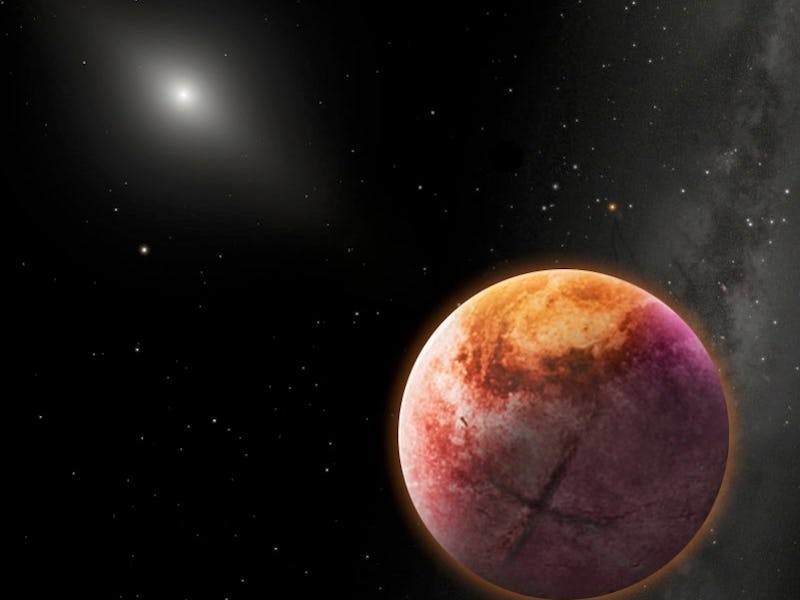New Space Rocks Could Lead Us to the Mysterious Planet Nine

Scientists looking for Planet Nine — a large, mysterious cosmic mass that supposedly exists way out beyond Neptune are still coming up empty handed. Astronomers still haven’t observed Planet Nine through a telescope, but they did find the next best thing: a bunch of huge new space rocks chilling out in the distant solar system.
Astronomers Scott Sheppard of Carnegie Science and Chadwick Trujillo of Northern Arizona University are among those scanning the skies feverishly for Planet Nine — allegedly several times the size of Earth, and 200 times further from the sun.
They haven’t achieved their goal yet, but their search has been far from fruitless. The pair submitted the discovery of the new (and still unnamed) objects to the International Astronomical Union for official designation, and a paper based on the research has been accepted by The Astronomical Journal, according to a news release.
These so-called “extreme trans-Neptunian objects” are much smaller than the planet everyone is looking for, but they could provide important clues as to the location of Planet Nine, assuming it’s out there.
The scientists who initially described the ninth planet suggested that it must exist because of a strange pattern among certain objects orbiting the Kuiper Belt. Their bizarre, converging paths indicated that each was being pulled by a gravitational force from a very large mass.
New objects in the outer edges of the solar system could help the search for Planet Nine.
These new pieces of space junk will either lend support to or undermine that theory. If the same body appears to be acting on these new objects in the same way, that could not only help confirm the planet’s existence, but narrow down the search area.
On the other hand, if analysis of their orbits doesn’t indicate that they are being acted upon by a planetary mass out there, we’ll end up with more questions that have no answers.
Given that folks are still mourning the passing of Pluto as an official planet (it’s now categorized as a dwarf planet), it’s fair to say that the eventual discovery of Planet Nine will be cause for celebration. If that happens, you can rest assured that the International Astronomical Union will do its best to approve an official name worthy of a proper planet. “Planet McPlanetface” is probably out.